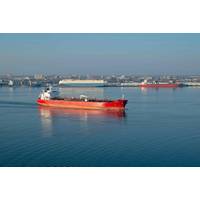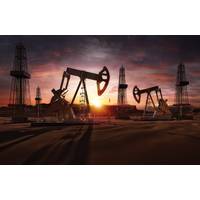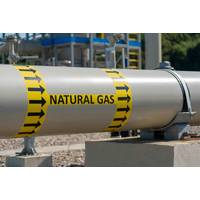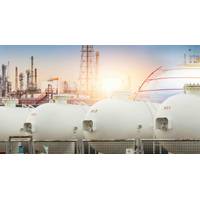Singapore’s MPA Discuss LNG Bunkering
The Maritime and Port Authority of Singapore (MPA), Antwerp Port Authority, Port of Rotterdam and Port of Zeebrugge participated in a Liquefied Natural Gas (LNG) bunkering focus group discussion on 14 and 17 October, held in conjunction with the Singapore International Bunkering Conference and Exhibition (SIBCON) 2014.
The three European port authorities and Singapore discussed the following areas on LNG bunkering:
• Harmonise the technical standards and procedures;
• Examine risk management, emergency procedures and crew competency standards for international shipping
Mr Andrew Tan, Chief Executive of MPA, said, “As an alternative fuel, the shipping industry is looking to LNG as a cleaner marine fuel to meet international regulations. Given the international nature of shipping, we are excited to work with the Antwerp Port Authority, Port of Rotterdam and Port of Zeebrugge, to harmonise the global LNG bunkering standards. We have made good progress in our discussions and will continue with our efforts to prepare the Port of Singapore to be ready for LNG bunkering in the near future.”
Mr Eddy Bruyninckx, CEO of the Port of Antwerp, said, “Antwerp has the ambition to be the most sustainable port in the Hamburg-Le Havre range. Being sustainable is not a trend for the port of Antwerp, it has become a way of managing our port. Our steps towards the creation of the possibility for ships to bunker LNG in our port form part of this sustainable management. Already in 2011 we expressed our strong belief in LNG as a fuel for the future. In the past years we developed and published procedures for the safe bunkering of LNG as a shipping fuel, we looked into the possibility to build a LNG bunkership and we are currently in the process of tendering a candidate to build and operate a LNG bunker station for barges. The European Union is supporting us, but of course the cooperation with other ports with an outstanding knowledge and expertise in LNG, like Rotterdam, Singapore and Zeebrugge are of great importance to successfully complete the pioneering work we are doing within the bunkering of LNG as a fuel for ships.”
Mr Ronald Paul, COO Port of Rotterdam Authorities, said, "As the most important bunker port of Europe we strongly believe in the transition from heavy fuel oil to LNG as fuel for the shipping industry. Together with other ports like Amsterdam, Zeebrugge and Antwerp we work on the conditions to realize that. The European Union supports us with financial aid for general facilities. It is good to look further than the European border and harmonise also global LNG bunkering standards. The ports of Rotterdam and Singapore have a long tradition of partnership when it goes about environmental shipping issues.”
Mr. Joachim Coens, CEO of the Port of Zeebrugge, said, “Port of Zeebrugge has 27 years of LNG experience, the Fluxys LNG terminal being one of the major European LNG hubs. LNG is without any doubt one of the best possible options to cope with the forthcoming IMO emission limits. Zeebrugge aims to play a lead role in the evolution of LNG fuelling. At this moment we are adjusting the port regulations, an important step in establishing LNG bunkering operations in Zeebrugge. Apart from this theoretical framework, we have already worked together with several parties who are part of the elaboration of different kinds of small scale LNG projects connected to Zeebrugge in one way or another.”
Over the years, MPA has been collaborating with industry partners and stakeholders on joint industry projects on LNG bunkering in Singapore. In 2010, MPA embarked on a joint industry project led by DNV Technology Centre to assess the commercial viability for LNG. In 2013, MPA signed a Memorandum of Understanding with the Antwerp Port Authority and the Port of Zeebrugge to harmonise LNG bunkering standards. In 2014, MPA and its appointed consultant, Lloyd's Register, completed its study on the Technical Standards and Procedures for LNG bunkering in the Port of Singapore. Following the study, MPA is working closely with the industry and stakeholders to develop a Technical Reference for LNG bunkering in Singapore.
The Port of Singapore recorded bunker sales volume of 42.5 million tonnes in 2013, retaining its position as the world's top bunkering port. Singapore's strong performance in bunker sales can be attributed to its strategic location at the crossroads of international trade and the industry structure that results in competitive bunker prices and assured quality and safety standards.









